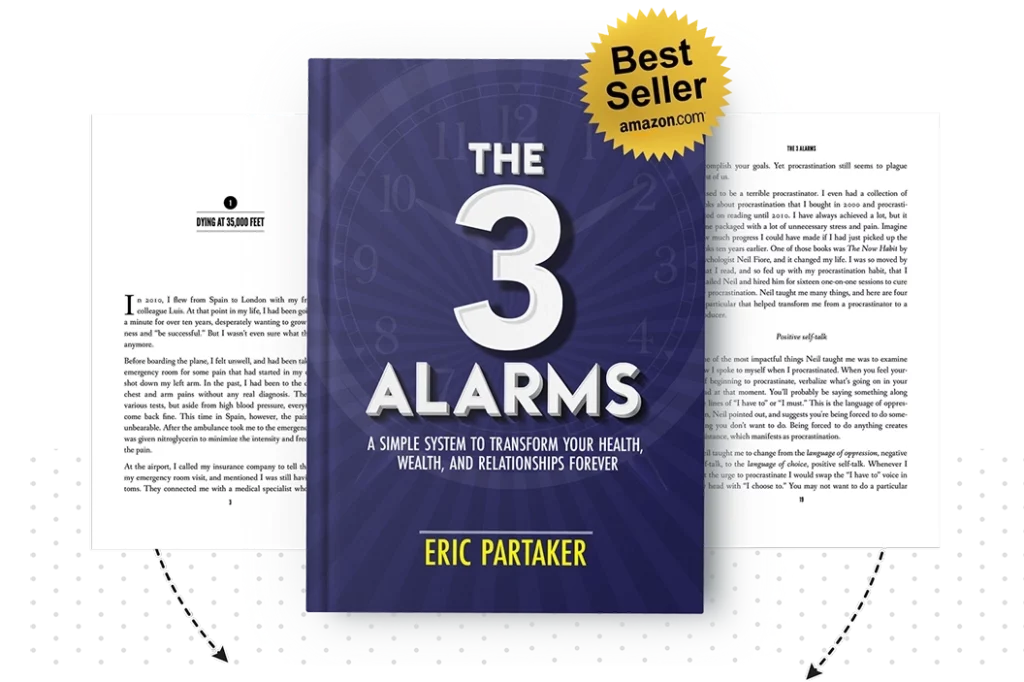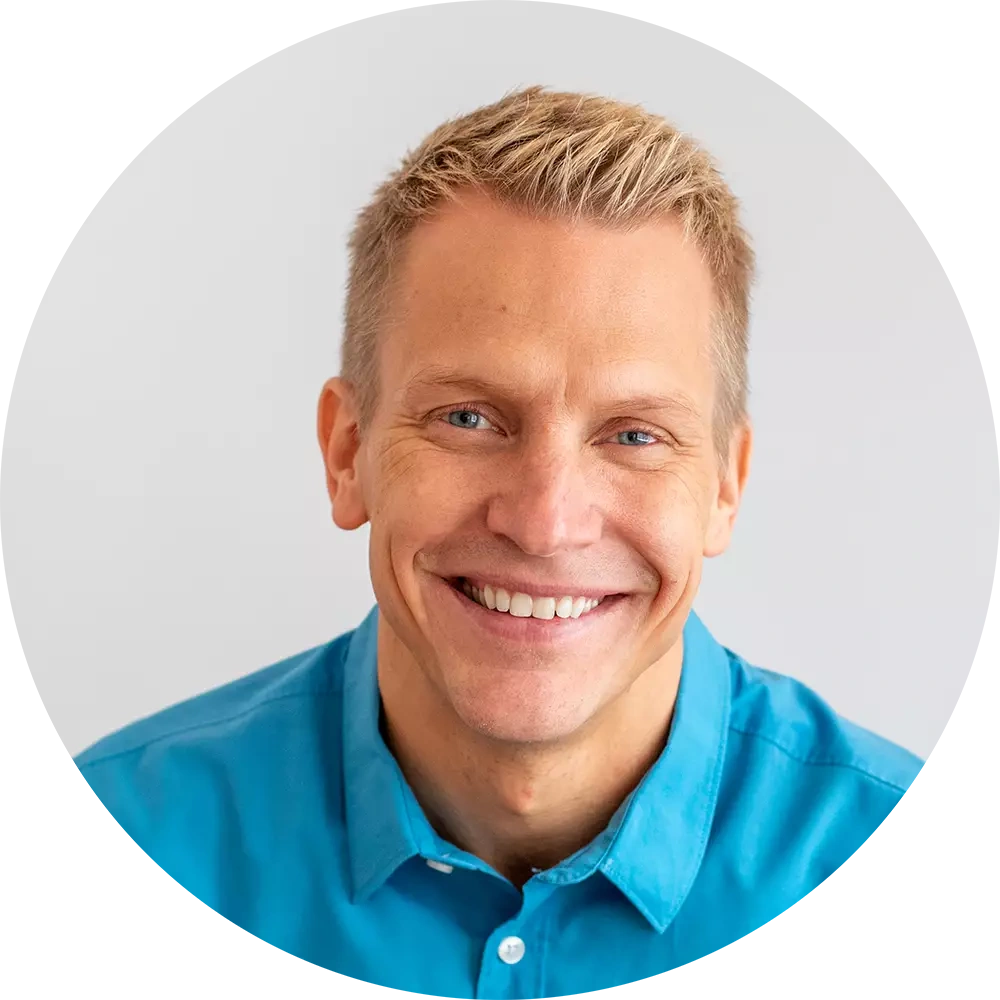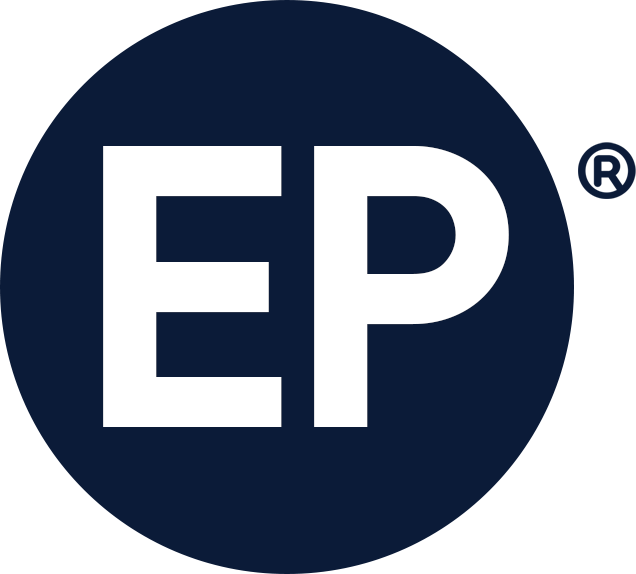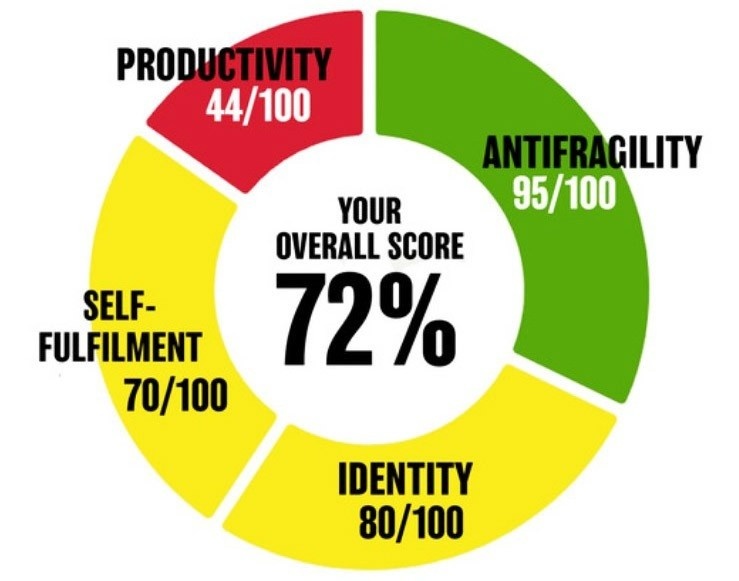Are you on the path to success or failure? Are your BIG IDEAS actually the reason you’re not reaching your goals? Join John Lee Dumas (Founder & Host of Entrepreneurs On Fire, and Author of ‘The Common Path To Uncommon Success) and Eric Partaker, as they discuss tips on how you can achieve your dreams and reach your full potential.
KEY POINTS
Hard Work = Success – It takes hard work and perseverance to achieve your dreams, to get financial freedom and fulfillment. There are no shortcuts. Get your head down and work hard!
Who’s In Your Inner Circle? – Surround yourself with the right people. People who believe in your dreams and push you to be the best version of yourself.
You have That BIG IDEA Inside Of You! – You just may not know it yet! Work out what you are enthusiastic and passionate about. What skills, value and expertise do you have that can help make the world a better place?
Identify A Niche! – Find a void in the marketplace, an underserved market that you can provide not only a solution to the problem but the number one solution to that problem.
Start Small! – Successful companies start small and earn the right to grow and expand. Jeff Bezos started Amazon just selling books. Over time, as you achieve success and notoriety, there will be opportunities to broaden out, to expand and move forward.
TRANSCRIPT
John Lee Dumas: We all have a big idea inside of us, every single one of us. Most people are going to die without ever having identified their big idea. Looking in the mirror and knowing that you are so under achieving your capabilities. That’s hard, too. You can have a big idea and fail. Having your big idea is step one, but there’s a 17 step roadmap you need to follow to get to success, to get the financial freedom, to get the fulfillment. Your big idea is just the first step.
Eric Partaker: Hi everyone, welcome to another episode of the 2%, where, as always, we’re having amazing conversations with key performers in all walks of life. Why? To give you tips, strategies and tools that you can use to reach the top of your game, to decode excellence.
I’m so excited to have my next guest on the show today, John Lee Dumas. John, welcome to the show. Great to have you here.
John Lee Dumas: Eric, I am fired up to be here, brother. Looking forward to our conversation.
Eric Partaker: Awesome. You are the founder and host of one of the world’s most popular podcasts, Entrepreneurs On Fire. We can see that in your microphone there. It’s actually how we … No, we actually met before that. But anyways, we had an interview on your show.
But here, today, we’re talking about another foray that you’ve entered into. You’re an author, now. You have an incredible new book and I want to help you share the incredible messages in this book with the world. But, I think a really good way to segue into the book is to ask you the following question. What do you believe that others don’t?
John Lee Dumas: I believe that you can have a big idea and fail. Most people think, when you have a big idea, there’s one path and that’s to success. I’m here to tell you having your big idea is step one, but there’s a 17 step roadmap you need to follow to get to success, to get to financial freedom, to get to fulfillment. Your big idea is just the first step. If you just have your big idea, you will fail.
Eric Partaker: The title of your book, The Common Path To Uncommon Success, I’d say that’s another thing that you believe that others don’t. That actually, you can achieve success beyond your wildest dreams in a very common way, your 17 path way.
John Lee Dumas: I didn’t call this book The Complicated Path To Uncommon Success, it’s not called The Secret Path or The Hidden Path because it’s a common path. It is a common path that, frankly, so many people have trod upon, including most of the 3000 interviews that I’ve done on Entrepreneurs On Fire over the past decade, yourself included. We have identified, through all those successes, and the failures, and the struggles and the wins, a very clear 17 step roadmap that it’s not easy, but it is hard.
One thing I want to talk about when I say it’s hard, Eric, it’s hard work to achieve your dreams. It’s hard work to get to financial freedom and fulfillment. Let’s be honest, if it was easy everybody would be financially free, everybody would be fulfilled. It’s hard. But, what’s also hard that a lot of people don’t think about is being broke, it’s living paycheck to paycheck. It’s looking in the mirror and knowing that you are so under achieving your capabilities. That’s hard, too. Because by the way, I’m speaking from experience, I lived that hard for six years. Six years I lived that hard. And at one point, you just go look in the mirror and you’ve got to say, “I’m going to choose my hard. It’s going to be hard to keep going down this path of being broke, under achieving. It’s also going to be hard to go down this path of crushing it, of building the business of my dreams.” Both paths are hard, choose your hard.
Eric Partaker: What was the key thing for you, that helped you break out of that six years of hardship?
John Lee Dumas: Surrounding myself with the right people. That Jim Rohn quote is so true, that you’re the average of the five people you spend the most time with. Unfortunately, I was not spending the time with the right people. I wasn’t spending time necessarily with the wrong people, they weren’t bad individuals. But, I didn’t have those inspiring, motivating, abundance mentality individuals surrounding me that was rising my ship. Well, all ships do rise in that high tide. I didn’t have that high tide, I wasn’t part of that.
It wasn’t until I started reading the right books, listening to the right audio books, finding the right podcasts to fill my head with the right information that set me on the path to now get to where I am today.
Eric Partaker: I think one of the things that is absolutely amazing about the book is success leaves clues. As you said, you based it on over 3000 interviews. It’s like a modern day Think and Grow Rich, right? You literally interviewed so many incredible people and distilled all that into your 17 point framework.
But it starts, as you said, with coming up with your idea. There’s this zone of fire, and you talk about this combination of it can’t just be what you’re passionate about and it can’t just be something that you have expertise in. It needs to be the intersection of those two things.
What about the person who says, “I’m not an expert in anything. I don’t have a big idea, I don’t have something that fits that.” What do you say to them?
John Lee Dumas: I’d say you’re wrong. You’re wrong. You’ve never been through the right process. You’ve never been through step one, chapter one, identify your big idea.
We all have a big idea inside of us, every single one of us. Most people are going to die without ever have identified their big idea. That’s sad. It’s true, but it’s sad at the same time. Your big idea is there. It’s a combination of things that you enjoy, that you’re enthusiastic about, that you’re passionate about, that you also have skills, value and expertise to add to the world. It’s a combination, the overlap of those things is called the zone of fire. Your zone of fire exists, you just need to take the time to find it.
We’ve laid it out for you, step by step, in a very clear, concise exercise. You’ve just got to take action.
Eric Partaker: One of the things too, that I love that you talk about in the book, one of your points is about how to create a mastermind. You started as when I said, “What was the turning point for you,” you said you met the right people, you read the right books. So success doesn’t happen on your own, you have to do it with others.
For the person who’s sitting there and thinking, “Okay, yeah. But, I don’t anybody to team up with. How do I create a mastermind? How do I link up with the right people?” What do you say to them?
John Lee Dumas: I say, again, you just have the wrong mindset, you have the wrong mentality. I give you a step by step process on how to either find or create your own mastermind.
Once you read that step in the book, which is step six, chapter six, you’ll realize that everybody’s doing it wrong. Everybody is doing masterminds incorrectly. Myself included, I’ve done masterminds wrong for a decade. But, when you really sit down and talk to other experts who have actually done it right, and you sit down and you look at your own experience and see what’s worked and what hasn’t, and why they worked, you then are able to sit down and create and actual, specific roadmap on how to create the right masterminds. It’s very specific, it’s very clear.
Listen, I don’t leave much gray in this book, it’s either black or white. I like letting people know, “This is the right way to find a mentor. This is the right way to create a mastermind, and then to run a mastermind. This is how to create an amazing content production plan.” This isn’t just one person’s perspective. This is the culmination of 3000 interviews I’ve done, over the past decade, with the world’s most successful entrepreneurs. I’ve taken all of their genius, all of their knowledge and I put it into one single book, one single 17 step roadmap, to that financial freedom, to that fulfillment, and I wrapped it up in a nice bow.
Eric Partaker: Perfect. Who’s the perfect reader for this? Because of course, you can’t be all things to all people. So who’s the perfect reader?
John Lee Dumas: The perfect reader is somebody who can follow a process, who can follow a step by step roadmap, who’s looking for financial freedom in their life, who’s looking for fulfillment in their life. And guess what? Not everybody should be an entrepreneur.
Eric Partaker: Yeah.
John Lee Dumas: Not everybody should be a businessman or a businesswoman. There are a lot of happy people out there that will never venture into this space and I’m happy for them because they found their path, they found their happiness.
But, for those people that do want to achieve that financial freedom and fulfillment with their big idea, this is who this book is for.
Eric Partaker: What is the one thing that you would say most entrepreneurs should be doing but are not? Your opinion.
John Lee Dumas: They’re not identifying a niche, a void in the marketplace, an underserved market that they can become not just a solution to that problem, but the number one solution to that problem. Everybody wants to think that they can have the biggest, broadest audience possible so that they can just encompass and solve as many peoples’ problems as they possibly can. So they have this very vague, broad idea of what their doing when nobody wants the second best solution to their problem, nobody wants the 74th best solution to their problem. People are going to beat a path to the doorstep of the number one solution to their problem and they’re going to ignore all of the other solutions to their problems that is not the number one solution.
What people are doing wrong is they’re not planting their flag in the sands in a very specialized, unique niche that they can become the best solution to real problem in. And for that reason, they’re always struggling, they’re always just getting by, they’re always just having to restart and try something new, because they’ve never been able to establish that dominance of being number one, the best solution to a real problem.
Eric Partaker: I like that in the book too, because it helps you zero in and focus. People get very confused, with the big companies these days, because they look at somebody like Amazon for example and they say, “I have a great idea. Yeah, I’m going to create a company that sells all things to all people.” What they forget is the history, they forget the story. That Jeff Bezos wasn’t doing all things to all people, that he started with books.
Niche-ing doesn’t necessarily mean that you just stay in that niche for eternity, but you need to start small so that you can earn the right to grow and expand.
John Lee Dumas: That’s a really good point to make because a lot of people do feel like, when they start a niche, like they’re carving their gravestone. “Oh, well I guess this is the rest of my life.” No, this is how you get the initial traction, the initial momentum, which is so hard to get as an entrepreneur. This is how you get that. And then, over time, as you achieve success and notoriety in that area, there will be more opportunities for you to broaden out, to expand, to go forward.
Eric Partaker: Totally. I like to think of it as the space shuttle. Once it gets out into space, the universe is endless, but the launchpad is a tiny, little dot on the surface of the Earth.
John Lee Dumas: And, it literally takes 90% of the fuel capacity of that rocket ship just to get out of the Earth’s atmosphere. And then, once it’s out, it doesn’t just necessarily become easy but it definitely becomes easier because it’s so hard to break through in this loud, crazy, chaotic world. And it becomes so much easier when you’ve identified a niche that is underserved, that’s a void in the marketplace.
Eric Partaker: John, so good to see you again. The Common Path To Uncommon Success, it is not as complicated as you think. If you want to be an entrepreneur, if you want to create the financial freedom that you seek, John has distilled a 17 point path from 3000 interviews of successful entrepreneurs and leaders. Grab a copy of the book.
Great to see you again, man. I’m looking forward, as I said earlier, I will get out to Puerto Rico, I will take you up at that drink at your place, your place looks beautiful. But until then-
John Lee Dumas: You’re looking at it, right now.
Eric Partaker: Yeah, I can see it. I can see it. But until then, I’m wishing you the best with an incredible launch, and burn up that 90% of the fuel and dominate the author space.
John Lee Dumas: Adios, brother. Thank you.
Eric Partaker: All right, peace.




